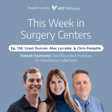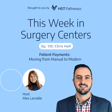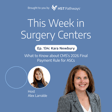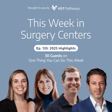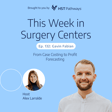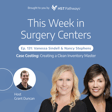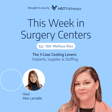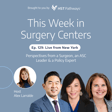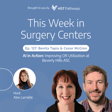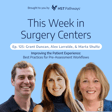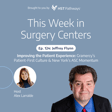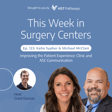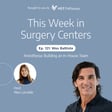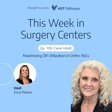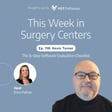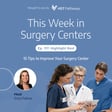
Greg DeConciliis – Opening an ASC: Continuous Improvement
Today is the final episode in our 9-part De Novo series! Last but certainly not least, Greg DeConciliis joins us again to discuss Continuous Improvement. You have officially opened your doors, and you can certainly celebrate, but what you cannot do is become complacent. So, Greg walks us through keeping physician and patient satisfaction high, the role of data and benchmarking, how to cultivate an environment of growth, and how to continuously improve, expand, and thrive.
In our news recap, we’ll cover the 11 ASCs in California recognized by CASA, why it’s essential to screen for cognitive impairment in your patients, the latest on noncompetes and the FTC, and, of course, end the news segment with a positive story about a new serenity lounge at Cedars-Sinai Medical Center.
Articles Mentioned:
CASA Awards 11 ASCs with the CASA Award for ASC Excellence
Cognitive Screening in Older Patients May Help Optimize Outcomes
Noncompetes are going extinct: 5 things to know
Cedars-Sinai Expands Nurse-Led Workplace Wellness Initiative with Serenity Lounge
Interesting in learning more about opening a new surgery center? Check out our related episodes:
- Michael McClain – Opening an ASC: Navigating Payer Contracts
- Wil Schlaff – Opening an ASC: Conducting a Comprehensive Feasibility Assessment
- Dawn Pfeiffer – Ask the Expert: Best Practices for Opening a New Surgery Center
- Beata Canby – Opening an ASC: Managing the Regulatory and Certification Process
- Gregory DeConciliis – Opening an ASC: Clinical Preparation
- Andy Berg – Opening an ASC: Finding Your Dream Team
- Wil Schlaff – Opening an ASC: Business Preparation
- James McClung – Opening an ASC: 30 Days from Your First Patient
Brought to you by HST Pathways.
